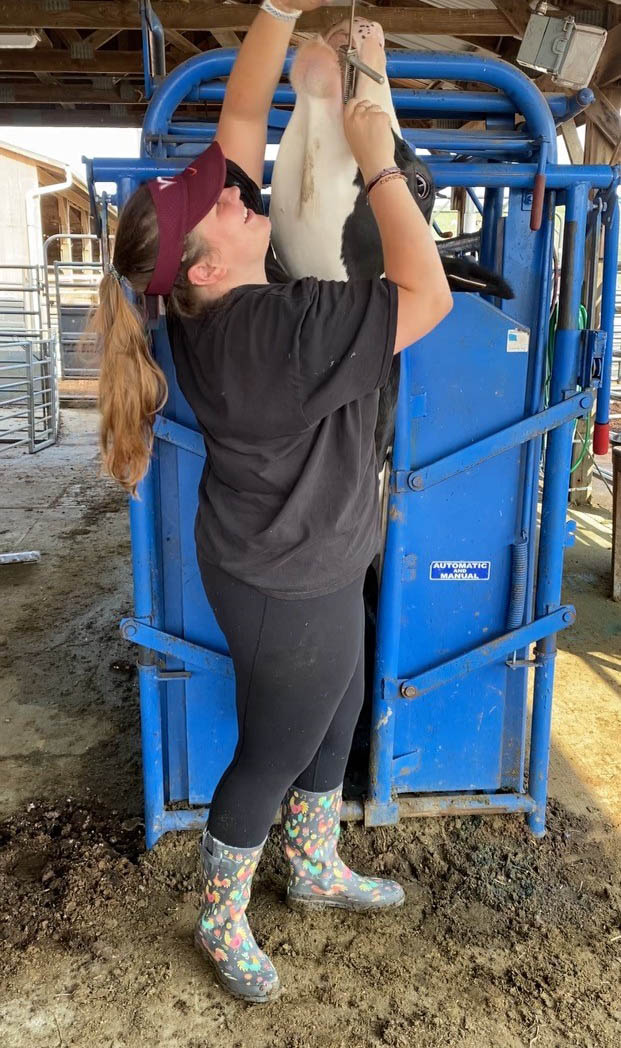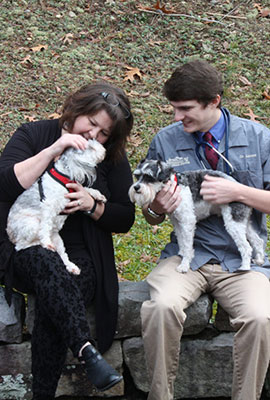Pre-Veterinary
Pre-professional students are advised to take a broad, general education program to gain background in the arts, humanities, natural sciences and social sciences.
Most professional schools do not require a specific undergraduate major, although many applicants elect a biology or chemistry major because of the entrance requirements of the schools.
Veterinary School Admission
Admission to veterinary medicine schools is highly competitive. Since vet schools have more qualified applicants for admission than they can accept, a competitive candidate will have: a strong academic background in math and science, a high GPA and placement test scores, broad exposure to veterinary medicine (e.g. working with veterinarians and scientists, working on a farm or volunteering at an animal shelter), and research experience.
The minimum requirements for admission vary somewhat from institution to institution, but a typical list of requirements includes English Composition (6 semester hours), Speech or Technical Writing (3 hours), Biological Sciences with lab (8 hours), Microbiology (4 hours), Inorganic Chemistry with lab (8 semester hours), Organic Chemistry with lab (8 semester hours), Biochemistry (3 hours), Statistics (3 hours) Physics with lab (8 semester hours), and Social or Behavioral Sciences (6 semester hours). A quantitative background, including Calculus, is recommended.
Pre-veterinary students may take the Graduate Record Exam (GRE), the Medical College Admission Test (MCAT) or the Veterinary College Aptitude Test (VCAT), depending on the requirements for each school. Students should plan to take the placement exam late in the spring of their junior year. The Veterinary Medical College Application Service (VMCAS) deadline is typically early September (~15th) and some schools have supplemental applications that must also be submitted by that time, so students should plan on applying the summer between junior and senior year for admission the following fall.
Students interested in veterinary medicine can contact Dr. Mabry in the Biology and Environmental Science Department, mabrym@dewv.edu.

D&E Senior Participates in Cattle Metabolic Study
Davis & Elkins College student Shelby Collins gained hands-on experience through an internship she hopes will lead her to her intended career. The senior biology major in the pre-veterinary program was among students from throughout the United States selected to participate in the Summer Undergraduate Research Experience (SURE) at West Virginia University.
“Davis & Elkins provided me with the resources needed to participate in the research program,” Collins said. “Without it, I would not have known it was available or had the knowledge needed to have the ability to dive right in and take full advantage of the opportunity.”
Leading the Way.

Facilities
Three teaching laboratories are available for courses taught in the major and research.
Other facilities include:
- Stock room for chemical storage.
- Prep room
- Two Balance rooms
- Instrument Room which houses the following: Perkin Elmer Infra-red Spectrophotometer
- Nicolet Infra-red Spectrophotometer
- Beckman Ultraviolet/Visible Spectrophotometer
- Perkin ElmerUltraviolet/Visible Spectrophotometer, Lambda 20
- Sargent Heavy Duty Electrolytic Analyzer (Electro deposition Apparatus)
- Kreis Polarimeter
- Perkin Elmer Auto System Gas Chromatograph
- Varian Gas Chromatograph
Other equipment in various laboratories for student use is as follows:
- Spectroscopes
- Baush and Lomb Refractometer
- Baush and Lomb Spectronic 20 Spectrophotometers
- Centrifuges
- pH Meters
- Analytical Balances
Division Directory
Lead the Way at D&E. Contact us today.











